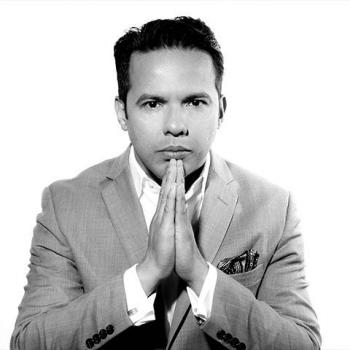Few events bring with them the mixture of hope and anxiety as does our children’s transition from high school to college. On the positive side, this is a time of exciting change, as our children progress from adolescence to adulthood, and prepare for life and work in a learning environment full of opportunity. As Christians, we approach this transition knowing that the most important part of a student’s development is spiritual, a component that some schools neglect. The secularism we find on most campuses requires us to be intentional as we choose the college or university that is the right fit. In addition, there are a number of other factors to consider to ensure that our students thrive during their college years.
One of the first pieces of advice I extend to families that are considering the right college is to diligently seek the Lord about the choice, and as much as possible, leave the decision to the student. All students will need their parents’ input in making this decision, but it is their education, it is the next four (or more) years of their lives, and this is just the right time to make adult decisions about your future and enjoy the freedom and responsibility that comes with them. Choosing the right college is one of life’s most important decisions, and it should not be entered into lightly. Try to resist the “easy” choice, and instead keep your options open; do as much research as you can, and make as many college visits as you can. Don’t simply follow a sibling to their school or choose the local community college because of convenience, but realize that God wants to use your gifts and abilities to enhance a specific campus for your entire college career.
The next step is to make a list of “campus priorities” to help narrow the choices. These priorities should align with the ultimate goal of your collegiate experience. Common priorities are things like: Must be a Christian college or university, must have small class sizes, must be affordable, must graduate a large percentage of students in four years, must be within 250 miles of my home, must have a large athletic or theater program, and the like. Sometimes students will list 1-3 “non-negotiables,” those elements that are most crucial to you. Only you and your family can decide what those priorities are, but writing them down and keeping them handy will help you with your choice. Many Christian students and parents wonder if God will bless them if they choose to attend a state school or go to a secular college. In truth, there are great Christian faculty, students, and organizations at nearly every college in the U.S. While many of them are anti-theistic in their approach, Daniel excelled in Babylon and knew their texts well, but would not compromise his faith. You don’t have to either. I always advise Christian students to consider a Council of Christian Colleges and Universities (CCCU) school first—there are many to choose from, and they will all seek to develop your mind and spirit—but if the Lord leads you elsewhere, follow His leading and be intentional about developing spiritually while on campus.
Campus priorities in hand, now you can visit campuses to better decide which school is right for you. These visits don’t need to occur when you are a high school junior or senior. Our family would always try to visit college campuses when we traveled to a new area, and our kids had already seen a number of campuses before they were high school freshmen. While it is a good idea to formally plan a campus visit, I always recommend visiting your top 2-3 choices unannounced at least once. Most campuses do an excellent job of highlighting their strengths if you give them the opportunity to plan a formal visit, but an informal visit can give you important insights that a formal tour would not. On your informal tour, visit the school library and student center. Be sure to speak to students about their experience, and ask them specific questions about their experiences at the school. At the formal campus visit, be as thorough as possible. Ask what percentage of faculty have terminal degrees, ask what programs are particularly strong, ask about the average student debt at graduation, ask very specific questions about student housing, remembering that your roommate is critical factor in helping your first year be memorable (for the right reasons!) Also be sure to inquire about what percentage of freshman classes are taught by full time faculty and any other questions that frame what is important to your college experience.
One campus that our daughter visited had a large commuter population of students, and the campus became very quiet over the weekend as many students drove to their homes nearby. After we received that information, we knew to ask that specific question when we visited other schools. In this technological age, “virtual campus visits” are very common, so keep that option in mind as well. Most college websites have exceptional resources for prospective students, with information on a variety of topics, from virtual campus tours to financial aid and more. You can even ask a college recruiter to engage in a “Face Time” or other video call so that they can actually walk the campus and speak to you about it at the same time.
Now you have done the research, made campus visits, sought the Lord’s direction, and made a college choice. What next? Here are some further practical suggestions to help you navigate the waters of college life. You are likely to be required to take a “placement exam” for English and Math that will determine which entry-level course is right for you. Many students do not prepare effectively for these tests, and wind up taking remedial courses—which do not count for credit—very often needlessly. It is best to ask the school for a study guide before you take the exam; some of them are available online.
Your next step might be to sign up for your first semester’s classes. Many people are surprised to learn that most students who drop out of college do so during or after one semester, so being prepared will help you to succeed where others fail. Try to manage your time wisely, and do not overload yourself with classes in the first semester. Most studies show that students who begin and continue full time are more likely to complete their degree, so set full time study—usually four classes or twelve credits—as a goal. If you are not working, and think you can handle a fifth class that may be a good option. Some students prefer having an “extra” class, so that if they are forced to drop a class, they will still be full time. Remember that nearly all scholarships require that you maintain full time status. Try to balance your schedule so that you are not taking too many reading-intensive courses at the same time. More than one great student became overwhelmed after taking Chemistry and Biology in the first semester, so work with your advisor to work out a schedule that is right for you. Many classes begin later in the morning; so if you know that you are not a “morning person,” then do not schedule your Intro to Philosophy class at 7am. Many students will schedule classes in the evening so that they can work during the day. Most experts say that a student—especially in year one—should not work more than 15 hours per week. If you have to work more than that, you will need to manage your time very effectively to be successful.
Remember that having a determined attitude will help you be successful in college. People never ask successful business owners or doctors or sociologists what their GPA was in college. Getting a “C” is no reason to get frustrated. As Carol Dweck writes in her celebrated book, Mindset, “Even when you think you’re not good at something, you can still plunge into it wholeheartedly and stick to it. Actually, sometimes you plunge into something because you’re not good at it. This is a wonderful feature of the growth mindset. You don’t have to think you’re already great at something to want to do it and to enjoy doing it.” This is great advice! Stick with it; God is with you. Getting through, learning a lot, making great friends, preparing for life and the workplace, and growing in the Lord are the goals of a great college experience. You can do it. You will. Work hard and determine in your heart that no matter what comes, you are not going to drop out. Quitting is not an option.
Your schedule is now set, and your first day of class is approaching. If you are planning to live on campus, check and see if your school offers any “early arrival” options. Some schools have orientations or programs that students can attend in advance of the start of the semester. Take advantage of these options, because you will have an instant familiarlity with the campus, get to meet some potential friends, and even have first dibs on which bed to take. If you are able to get class syllabi in advance, do so. You can even get your textbooks in advance (online options are often cheaper than the campus bookstore) and get a head start on your reading assignments.
If you leave home and live on campus, expect to be homesick. It usually gets pretty bad after a few weeks, but nearly every student will adjust to his or her new surroundings by week twelve, so just give it some time. Now is a good time to inquire about Christian organizations and activities on campus. Some schools, especially evangelical ones, will provide transportation to local churches. I always encourage students to join at least one organization or group that aligns with their values, but is outside their general scope or experience. College is the right place to explore and stretch the appropriate boundaries that have defined your life to this point. It is the right place to solidify your faith, and integrate it into every area of your life. A Christian university or college will make that integration easier, but seek the Lord where He may be found, and He will be faithful and reveal your destiny to you as you invite Him to be at the center of your college experience.
Dr. Carlos Campo is the Chair of the Hispanic Education Alliance of the National Hispanic Christian Leadership Conference












